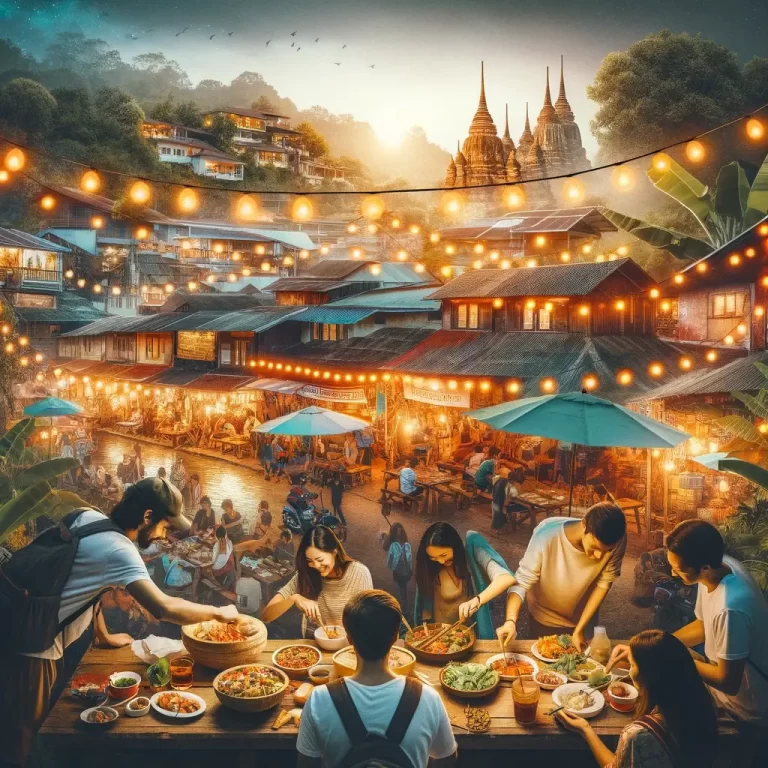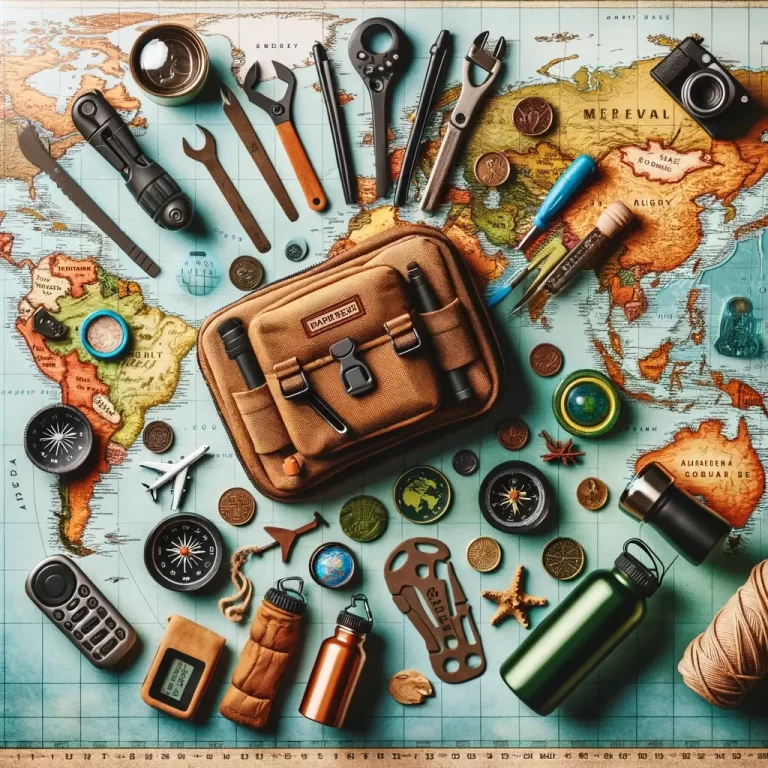Easy backpacking dinners: Quick and satisfying recipes
Embarking on a backpacking adventure often means leaving the comforts of home behind, but it doesn’t mean you have to sacrifice enjoying good food. Whether you’re scaling mountains or traversing forests, the right meals can fuel your journeys and elevate your outdoor experience. In this guide, we’ll explore easy backpacking dinners that are both satisfying and simple to prepare, ensuring that your focus stays on the adventure, not on complicated cooking.
Cheap and easy backpacking food ideas
One of the core challenges of backpacking is keeping costs low without compromising on nutrition and taste. Budget-friendly backpacking dinners can include a variety of grocery store finds that are light on the wallet and backpack. Staples like instant rice, canned beans, and tortillas can be transformed into a hearty burrito bowl. Pack some spices in small zip-lock bags to add a flavor punch without the weight.
Peanut butter is another versatile option, packed with protein and healthy fats. Spread it on bread or pair it with fresh fruit for a satisfying meal. And don’t overlook the classic trail mix – a customizable, energy-dense snack that can double as a meal in a pinch.
Savvy backpackers also make good use of coupons and discounts when shopping for their trips. Bulk purchases of non-perishable items can save money and last across multiple excursions. Remember, the goal is to keep it simple, affordable, and delicious.
One-pot backpacking meals for hassle-free cooking
After a long day of hiking, easy one-pot meals for backpacking are a welcome convenience. These recipes not only save time but also reduce the amount of cleaning needed. One-pot pasta dishes, for example, only require boiling water, your pasta of choice, and a mix of dehydrated vegetables and proteins.
A single pot can also be used to create a comforting soup or stew. Begin with a base of powdered bouillon, add in pre-cooked and dehydrated ingredients like lentils, and finish with a handful of leafy greens for a nutrition boost. The one-pot method is ideal for those seeking minimal cleanup and maximum flavor.
And let’s not forget about breakfast! Oatmeal made with powdered milk and topped with nuts and dried fruits can be easily and quickly prepared in just one pot. This meal provides a warm and energizing start to any day of exploration.
Best backpacking breakfasts
They say breakfast is the most important meal of the day, and that’s especially true when backpacking. Quick and satisfying recipes for backpacking mornings set the tone for the day’s journey. Instant oatmeal is a lightweight and nutritious option, and you can spruce it up with nuts, honey, or dried fruits.
For those who crave a savory start, pre-packed scrambled eggs with powdered milk and cheese is a protein-rich choice. Just add water and cook for a fulfilling breakfast scramble. And for a no-fuss meal, granola with powdered milk or a protein shake provides quick and sustaining energy.
Remember to balance carbohydrates, proteins, and fats in your breakfast to sustain energy levels throughout the day. A good breakfast not only provides necessary nutrition but also boosts morale and motivation for the day ahead.
Homemade backpacking meals just add water
DIY enthusiasts can rejoice with homemade backpacking meal ideas that only require water to prepare. Dehydrated meals are particularly popular among backpackers for their light weight and easy preparation. Create your own mix of dehydrated beans, veggies, and spices; at camp, just add hot water for a tasty chili.
Pasta sauces can also be dehydrated at home and rehydrated on the trail for a gourmet pasta dinner. And for a quick snack or side, couscous only needs boiling water and a few minutes to fluff up – perfect for a fast and fulfilling addition to any meal.
The key to success with these meals is to test them at home first. This way, you can adjust the flavors to your liking and ensure they rehydrate properly in the field.
No-cook backpacking meals for convenience
Sometimes, after a day of trekking, the thought of cooking can be too much to bear. No-cook backpacking meals are the perfect solution for those moments. Wraps with nut butter and honey or pre-cooked and seasoned packets of tuna or chicken provide a delicious reprieve that requires zero cooking.
For a refreshing option, consider cold-soaked meals. Soak couscous, dehydrated refried beans, or noodles in a container with water before you set up camp. By the time you’re ready to eat, you’ll have a meal that’s soft and ready to enjoy.
Cheese, salami, and crackers are also a classic no-cook meal, offering a balance of fats, proteins, and carbs without the need for any heat. Embrace the simplicity and enjoy the extra time stargazing or sharing stories around the campfire.
How to plan food for backpacking trips
Meal planning is an essential part of any backpacking trip. Start by calculating the number of meals you’ll need based on the length of your trip and your daily caloric requirements. Backpacking meal planning should balance nutrition, taste, and pack weight.
Choose foods that are lightweight, non-perishable, and easy to cook. Dehydrated food, instant oatmeal, and nut butter are great starting points. Consider packing a spice kit to enhance flavors without adding much bulk.
Investing in quality food containers or bags that are reusable and waterproof will also make your life easier on the trail. And don’t forget to pack out all your trash to leave no trace and practice responsible tourism.
Related Questions on Easy Backpacking Dinners
What is the easiest food to eat backpacking?
Instant foods like oatmeal, noodles, and soups are the easiest to eat while backpacking due to their quick preparation. Nut butters, energy bars, and pre-packaged meals are also convenient, providing essential nutrients without the need for cooking.
Snacks like trail mix, dried fruits, and jerky are also simple, no-prep options that offer high-energy sustenance. The ease of these foods means more time enjoying the wilderness and less time cooking.
What food should I take on a backpacking trip?
When selecting food for a backpacking trip, aim for a mix of carbohydrates, proteins, and fats for balanced energy. Healthy backpacking food options can include dehydrated meals, instant grains, nuts and seeds, nut butters, and dry-cured meats.
It’s also important to bring along some comfort foods or treats to enjoy after a long day. These can help replenish your spirits as much as your body.
How much food do I need for 2 days backpacking?
For a 2-day backpacking trip, plan for three meals per day, plus snacks. An average adult typically requires about 2,500 to 4,500 calories per day while backpacking, depending on the intensity of the hike and individual metabolism.
Pack calorie-dense foods like nuts, chocolate, and meal bars to meet your energy needs without overburdening your pack. Always pack a little extra as an emergency reserve.
Why are backpacking meals so expensive?
Backpacking meals are often expensive due to the processing and packaging required to make them lightweight, long-lasting, and easy to prepare. The convenience of “just add water” meals and specialized ingredients like freeze-dried proteins justifies the higher cost.
Creative budgeting and DIY meal preparation can help reduce expenses while ensuring you still have nutritious and enjoyable meals on your adventure.
As we explore these easy, delicious options for backpacking dinners, keep in mind that the best meals are those that nourish the body and uplift the spirit. With a little planning and creativity, you can enjoy meals that are as memorable as the landscapes you traverse. And now, let’s take a look at a video that provides even more insight into preparing for your backpacking meals:
In your quest for adventure, let these meals be the fuel for your journey, and may your experiences be as rich and satisfying as the food that accompanies you. Remember, the path less traveled is not only about the destinations you reach but also about the flavors you discover along the way.







